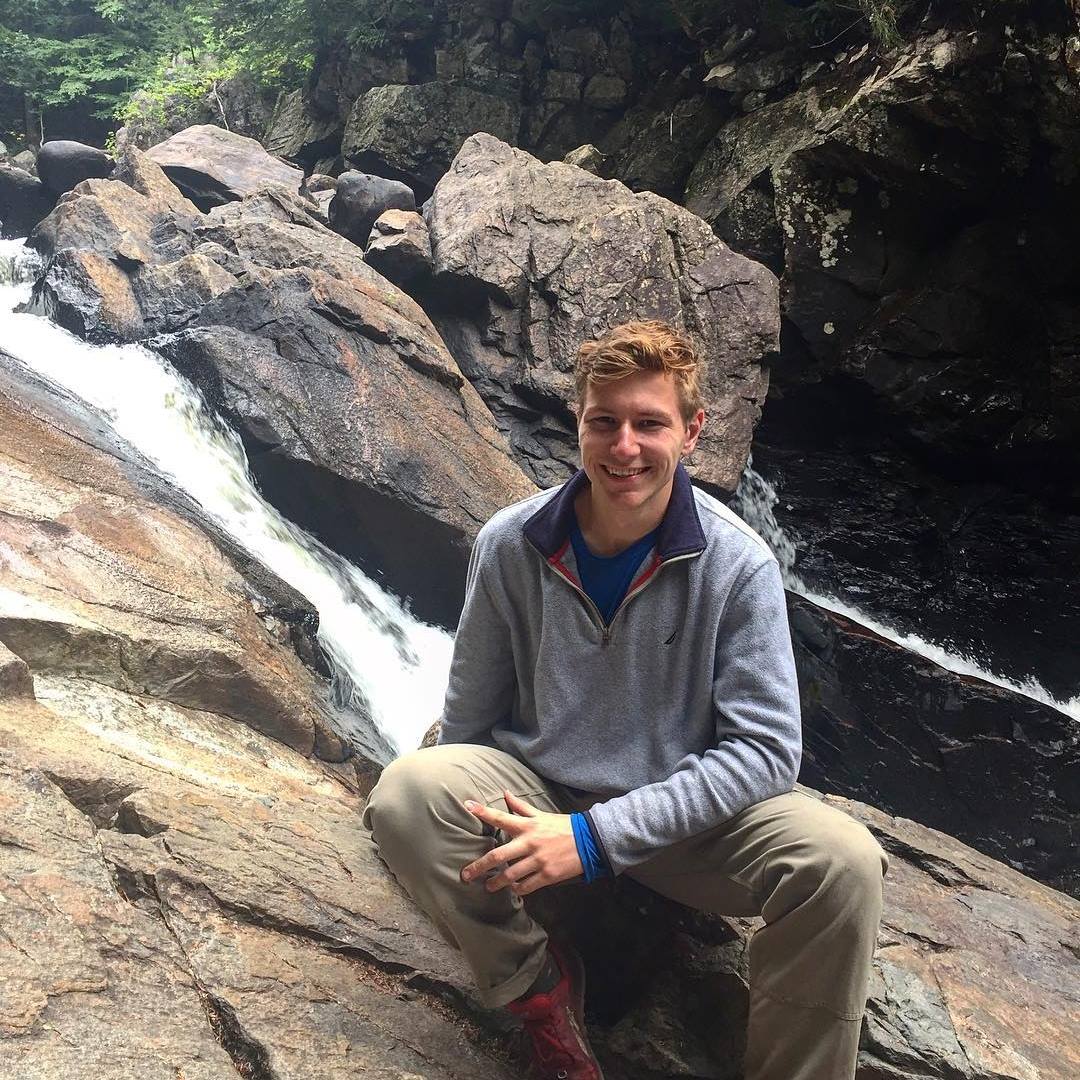Recent Headlines

Michael Mahoney
SUNY ESF Student Honored for Open-Source Geoscience Software
Michael Mahoney, a graduate student at the SUNY College of Environmental Science and Forestry (ESF), was honored by the New York State Geographic Information Systems Association for developing software that simplifies the process of creating interactive three-dimensional visualizations of landscapes.
Mahoney, a doctoral student in ESF's Graduate Program in Environmental Science, received the association's Geospatial Application Award, which acknowledges innovative and successful application of geospatial technology. The award recognizes his work on the open-source "terrainr" package, which provides access to public domain spatial data and landscape visualization tools.
"Michael's software is an innovative tool for environmental leaders who are addressing the most pressing issues of our time, including climate change. We are proud of him for his success," said ESF President Joanie Mahoney (no relation to the student).
terrainr is a new R package that focuses on the retrieval and visualization of spatial data. Drawing on publicly available imagery and data from the U.S. Geological Survey's (USGS) National Map program, Michael Mahoney's software provides a way to use the widely used open-source R programming language to interact with and control the Unity video game engine. He developed the software during his first semester as an ESF grad student.
"Michael's software immediately caused a positive stir in the data visualization world," said Dr. Colin Beier, an associate professor in the Department of Sustainable Resource Management who co-advises Mahoney with Aidan Ackerman of the Department of Landscape Architecture. Beier said that terrainr makes creating interactive 3-D environments a much easier task than ever before, lowering the technical barriers for educators, decision-makers and the public to use digital tools to engage in addressing complex challenges, such as the transition toward more climate-resilient communities.
"I've been overjoyed by the positive reception terrainr has received so far," Michael Mahoney said. "I think this project is a really exciting first step for being able to quickly and easily make interactive visualizations of real-world environments. My hope is that terrainr can serve as a cornerstone for future visualization tools so that we can help researchers and environmental professionals visualize all types of landscapes as a way to explain the patterns and processes they care about."
The new software is the subject of several more recent and forthcoming workshops, conference talks, and an article submitted to the journal Landscape Ecology. Michael Mahoney has led workshops on the software for professional audiences, including sessions for NASA's Federation of Earth Science Information Partners and the USGS Community for Data Integration, a cross-institution organization dedicated to advancing the use of data and technology to understand earth systems. Participants included employees of governmental agencies, academia and industry.
"Being invited to host workshops for leading scientists at key federal agencies, immediately after the software was released, highlights the value of what Michael has done," Beier said. "I think we are seeing just the tip of the iceberg in terms of his capabilities."
The software is freely available for the open-source R programming language and is available on github.
Michael Mahoney graduated from ESF in 2018 with a B.S. in Forest Ecosystem Science and returned to the College in 2020 to begin his Ph.D. His graduate work is supported by ESF's Net Zero Carbon (NZC) Discovery Challenge initiative and the Climate and Applied Forestry Research Institute (cafri-ny.org), a multidisciplinary team of forest, energy and climate experts based at ESF, who provide policymakers and the public with science-based and practical solutions to address climate change.
About SUNY ESF
The SUNY College of Environmental Science and Forestry (ESF) is dedicated to the study of the environment, developing renewable technologies, and building a sustainable and resilient future through design, policy and management of the environment and natural resources. Members of the College community share a passion for protecting the health of the planet and a deep commitment to the rigorous application of science to improve the way humans interact with the world. The College offers academic programs ranging from the associate of applied science to the Doctor of Philosophy. ESF students live, study and do research on the main campus in Syracuse, N.Y., and on 25,000 acres of field stations in a variety of ecosystems across the state.